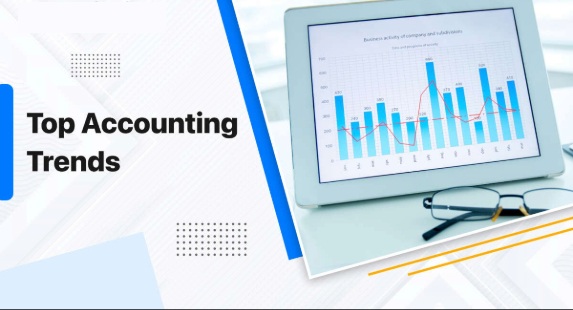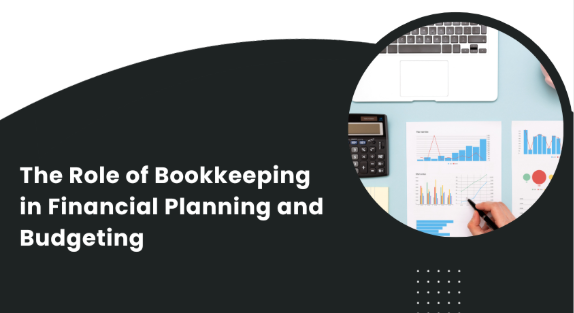Introduction
Accounting is changing very fast. What started as an internal, checklist-oriented role has now become an essential, tech-based part of a company’s strategy. With growing financial complexity, rules and expectations, accounting experts must anticipate new trends to give the most value.
Our team at Milan Accountants doesn’t only care for your financial books but also helps you plan for the future. In order to keep up in finance, it’s important to know the following 15 accounting trends you should follow in 2025.
1. AI and Machine Learning Are Key to the Revolution
AI and ML are shaping the way accountants complete their jobs. By 2025, AI will assist in more than just repetitive work—it will also give financial institutions intelligent information on trends, dangers and predictions.
Consider a service that notices unusual activity or alerts you to expected challenges during different times of the year. That’s what accounting with AI is all about. Our modern firms are relying on advanced tools such as MindBridge Ai, Xero Analytics Plus and QuickBooks Smart Insights.
We have begun to use AI technology to cut down on errors and furnish our clients with faster and deeper reporting.
2. Cloud Accounting Is Now the Main Method
Come 2025, running your business’s books in the cloud is no longer a choice—it’s required. Hybrid and remote teams need cloud platforms because they offer unlimited access, smooth connections and the ability to work together in real-time.
QuickBooks Online, Xero and Sage Business Cloud make it possible for businesses to handle billing, track costs and manage their bank balance with little effort.
Using the cloud is helping businesses handle disasters, meet regulations and grow as needed.
3. Financial data displayed in real-time
Business owners today don’t want to wait a whole month to review their figures. Getting real-time updates from cash flow, revenue and expense sheets helps businesses decide and adjust more promptly and with better information.
With software such as Fathom, LivePlan and Spotlight Reporting, forecasting, budgeting and scene planning are now quick, interactive and can be done on a computer.
In Milan, we develop personalised dashboards so our clients can monitor key figures and decide based on data each day.
4. ESG Reporting is Increasing in Significance
Because businesses must consider sustainability, they depend on accountants for Environmental, Social and Governance (ESG) reporting. People in finance expect companies to show how they manage their carbon emissions, diversity and supply chain.
Because of this shift, accountants are now asked to focus on non-financial information, coordinate with sustainability teams and adopt either GRI, SASB or IFRS Sustainability Disclosure Standards.
Businesses using ESG reporting come across as trustworthy, responsible and ready for the future.
5. Small businesses are using virtual CFOs more widely now.
Strategic financial leadership is often out of reach for small and mid-sized businesses. That’s the reason virtual CFO (vCFO) services were created. Professionals here guide you in budgeting wisely, managing your daily money and making long-term plans without charging the fees for a full-time executive.
Those trying to scale their business, manage risks and maximise profits can use Milan Accountants’ flexible CFO services.
6. How Blockchain Uses Strrounds to Meet and Improve the Process
Despite its young age, blockchain can already be seen in auditing, tracking money transfers and completing digital contracts. Because it uses immutable, open and distributed architecture, it can help end fraud and reduce the need for reconciliation.
Smart contracts help automatically release payments when certain rules are met which makes leasing and procurement more efficient and safe.
Using blockchain-ready software early can now give accounting firms an edge in the market.
7. Cybersecurity becomes something that leader needs to pay closer attention to.
Since most financial data is now stored in the cloud and attacks are getting more complicated, protecting the cloud is essential. Accountants should keep client data safe, follow GDPR and other rules and regularly examine their system.
Most companies now depend on cyber insurance, use multi-factor authentication, encrypt backup files and rely on secure sharing sites (for example, ShareFile and DocuSign).
Our bank follows rigorous rules for security and secures your finances with the best available encryption tools.
8. Working With Others for Fewer Hassles and Cut Costs
Because of labour problems, higher costs and worldwide connectivity, more businesses are turning to accounting outsourcing. Most companies now hand over bookkeeping, payroll, tax preparation and other compliance work to outside firms or offshore groups.
As a result, firms can improve their advisory services, keep quality high and cut expenses.
Having services provided by an outside partner keeps businesses able to respond quickly if the economy changes.
9. How automation works for SMEs
Automation in accounting can now be used by companies of all sizes. By 2025, even little businesses are letting programs like AutoEntry, Dext and Pleo take over invoice generation, matching receipts, processing payroll and tax filing.
By covering payroll, this service removes a source of error and frees business owners from managing their main business activities.
10. Developments in regulatory compliance
Regulations used by authorities to control tax matters are becoming stricter and digital. More businesses in the UK are being brought into the scope of Making Tax Digital (MTD). Governments around the world are making it mandatory to use e-invoices, file taxes in real-time and observe stricter Anti-Money Laundering norms.
Now, it is no longer a choice to meet regulations; doing so helps prevent penalties and protects your company’s reputation.
11. An Increase in the Use of Data to Analyse Accounting
Using advanced data analytics is now essential for discovering trends, noticing fraud and improving the way money is managed. An accountant should be able to make sense of data sets, use helpful tools for understanding data and draw useful conclusions.
You can begin by checking out Microsoft Power BI, Tableau and Zoho Analytics.
Our Milan office trains accountants in analytics tools, so they can use data to guide our clients in making the right choices.
12. Concentrating More on Strategic Advisory
Clients in today’s world want recommendations as well as the usual financial documentation. Now, accountants take on important roles in fundraising, combining businesses, ensuring a smooth transition of leadership and measuring performance against goals.
As advisory accounting grows in importance, it is clear that accountants will need strong business knowledge together with their financial knowledge.
Milan Accountants helps SMEs, startups and nonprofits figure out how to expand their business and be ready for what lies ahead.
13. Tailored and Quick Response Tax Planning
All over the world, the field of taxation is always evolving and can be hard to follow. By 2025, the focus on tailored tax plans will grow as both businesses and individuals now manage digital earnings, international sales and earnings linked to social and environmental results.
AI is making tax software smarter and consultants offer personalised support, so users are more likely to pay the right amount and be compliant.
Performing annual reviews isn’t sufficient anymore. Now, tax planning is something we have to do continuously.
14. You should learn new skills or knowledge as much as possible.
Because technology improves so fast, accountants always need to improve their abilities. Now, professionals in software engineering must train in topics such as automation, cloud services, data visualisation and new regulations.
Many companies are suggesting that their staff show digital badges, take part in webinars and undertake CPD for new systems and rules.
We provide our teams with learning programs and certificates in the latest accounting systems to help them improve their teamwork.
15. CCS Technology supports accounting organisations using remote and hybrid teams.
Remote work expanded quickly during the pandemic and by 2025, most accounting teams will have employees who work both in and out of the office. With cloud platforms, convenient online meetings and collaboration tech, businesses can hire qualified staff from around the world and give their people more flexible work options.
It is challenging to maintain good work, confidence in data and unity among employees in remote locations.
Because we use a hybrid approach, we can respond promptly and efficiently to clients from the UK and elsewhere.
Take Action—Today to Plan for the Future
Accounting in 2025 is full of movement, powered by technology and highly strategic. Irrespective of whether you run a business by yourself or are on the path to expansion, getting in step with these new trends will assist you in being compliant, standing out and confident about your finances.
At Milan Accountants, we innovate to provide client solutions that will work in the future. By making use of the newest tools and giving you personal strategy support, we’re here to help you succeed in today’s financial world.
It’s not enough to manage your books alone. Ensure your business is ready for the future.







